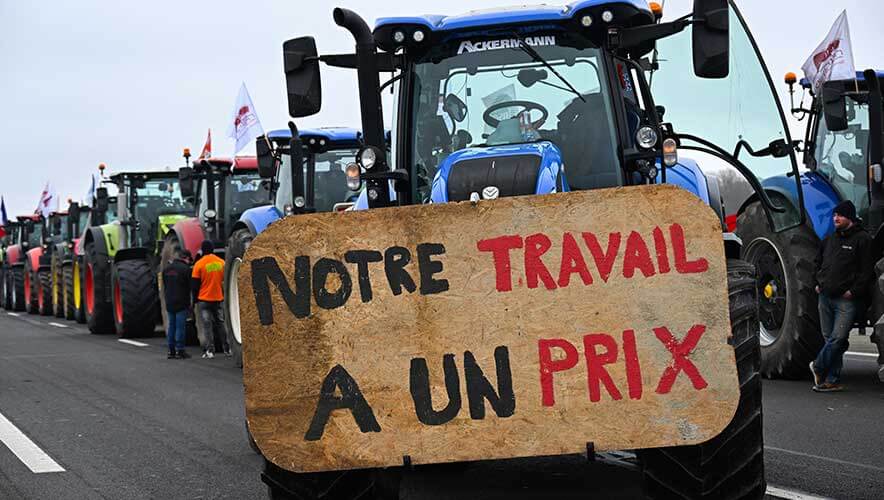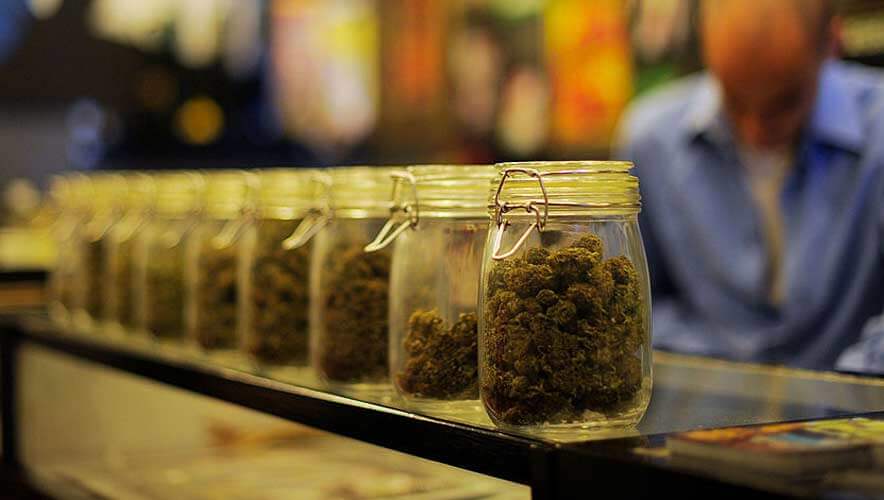French Farmers Lay Siege to Paris
French farmers intensified their protests on 29 January, blockading all the major roadways leading into Paris. The farmers’ grievances include low prices for agricultural products and escalating costs of energy and supplies, food imports from other countries who can produce at lower costs, rural areas being ignored by policymakers compared to urban areas, environmental regulations, and more localized concerns, including things like water access and veterinary care.
The farmers successfully shut down the A1 and the A4, two highways leading to Paris, as well as other major roadways, causing major disruptions to everyday life in the city. While some of the farmers were calling the protest a siege of Paris, the protesters left minor roadways in and out of the city open. The farmers have pledged to remain in place until their demands are met, and they came with food, tents, and even bales of hay for makeshift walls that serve as protection from the wind.
French farmers deployed their tractors to choke major highways, disrupting not only trade and traffic, but also politics and normal life, to protest subsidy cuts and new regulations. https://t.co/I0TVeKa6aq
— The Washington Post (@washingtonpost) January 30, 2024
Many farmers complain that imports are undercutting their livelihood, that wages are too low, and that regulation from both the government and the European Union has become suffocating.
But their concrete demands are so varied that the protests present an increasingly precarious moment for the government, one that defies easy solutions.
“I am determined to move forward,” Mr. Attal [French Prime Minister Gabriel Attal, who was appointed to the position earlier this month] said on Sunday after visiting farmers in the Indre-et-Loire area of central France. But he also warned that “there are things that cannot change overnight.”
French authorities deployed 15,000 police and security personnel, which they say are taking a defensive posture. Goals of the force are to keep the Paris region’s two major airports—De Gaulle and Orly—open, as well as protect the International Market, a wholesale food seller in Rungis that has been a target of the farmers.
On Tuesday, Attal announced new policies designed to appease the farmers, including the implementation of controls on foreign food products. “The goal is clear,” he told the National Assembly, “guaranteeing fair competition, especially so that regulations that are being applied to [French] farmers are also respected by foreign products.” Attal’s remarks came just as this piece was being published; leaders from the farmer protests had not had time to respond.
The protests are an escalation of disturbances that have been ongoing for a couple of weeks in France. Over the last week, the government has made several concessions to the farmers, including scrapping a planned phase-out of a discount on farm-use of diesel fuel.
In Agen, one of the first municipalities hit with protests, farmers dumped old tires, hay, manure, and other debris in front of a government building and set it ablaze—then used a backhoe to hoist some of the burning mass over the building’s gate and onto the grounds. Later, they used a fertilizer sprayer to blanket the outside of the building in manure.
The farmer protests are not limited to France. Germany, The Netherlands, Romania, and Poland have also experienced similar farmer protests, and the farmers have targeted the European Union summit in Brussels, Belgium, beginning 1 February as another site for protest.
Right-wing parties in several nations have tried to tap into farmer discontent to gain power. “Farmers’ anger has become a major issue for the far right across Europe,” Kevin Cunningham, a political scientist who has studied the surge in support for the far right for the European Council on Foreign Relations, told Politico. “It may not be the number one issue, it is surprisingly effective at crystalizing resentment over economic problems.”











